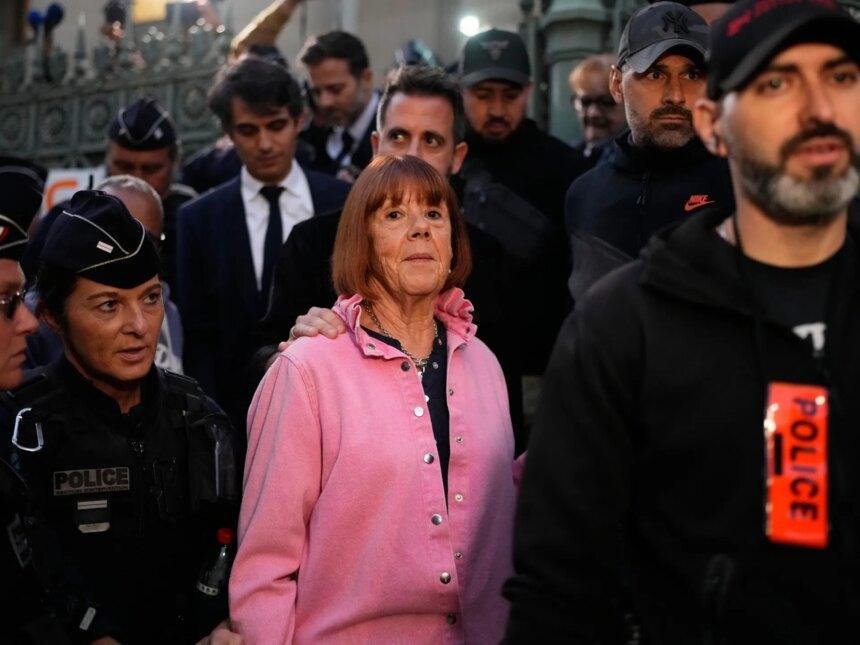Appeal in Landmark Sexual Assault Case: Key Testimonies Emerge
In a significant legal development, Husamettin Dogan, the sole defendant appealing his conviction in a high-profile sexual assault case, faced critical testimonies in a French court in Nîmes. The case revolves around Gisele Pelicot, a French woman whose ordeal has sparked international outrage and calls for reform in sexual assault laws.
Background of the Case
The case against Dogan, a 44-year-old construction worker, is part of a broader scandal involving the systematic abuse of Pelicot, orchestrated by her ex-husband, Dominique Pelicot. Last December, Dogan was one of 50 men convicted for their roles in the sexual abuse of Gisele Pelicot, who was drugged and assaulted over a prolonged period. The shocking nature of the case has drawn attention not only for its brutality but also for the systemic failures that allowed such abuse to occur.
Dogan was sentenced to nine years in prison, a sentence that was less than the 12 years sought by prosecutors. His appeal is notable as he is the only defendant from the case to contest his conviction, claiming that he believed he was engaging in consensual sexual activity.
Testimonies and Evidence
During the second day of the appeal, witnesses provided compelling evidence that contradicted Dogan’s claims. Among them was Dominique Pelicot, who received a 20-year prison sentence for his role in the abuse. He admitted to drugging his wife for over a decade, allowing him and various men he recruited online to exploit her. In a chilling admission, he also filmed many of the assaults, which involved at least 50 men.
In court, Dominique Pelicot denied ever coercing Dogan or misleading him about the nature of the encounter. “I never forced anyone,” he stated, asserting that the men involved did not require his encouragement. He refuted Dogan’s assertion that he had invited him to participate in a sexual game, emphasizing, “I never said that.”
The Assault and Its Aftermath
The incident in question occurred on June 28, 2019, when Dogan allegedly assaulted Gisele Pelicot for over three hours. Dogan has claimed that he only realized something was amiss when he heard Pelicot snoring, suggesting a lack of awareness regarding her consent. However, investigators presented video evidence that painted a different picture.
Jeremie Bosse-Platiere, an investigator, testified that the footage clearly indicated Dogan was aware that Gisele Pelicot had not consented. “Anyone who sees the videos understands this immediately,” he asserted. The police commissioner described a moment in the video where Pelicot moved slightly, causing Dogan to withdraw momentarily, indicating his awareness of her lack of consent. However, he resumed the assault shortly after, demonstrating a troubling disregard for her autonomy.
The investigation uncovered a staggering 107 photos and 14 videos from the night of the assault, further complicating Dogan’s defense.
Gisele Pelicot’s Courage and Advocacy
Gisele Pelicot is expected to testify in the ongoing proceedings, with a verdict anticipated later this week. Her decision to waive her right to anonymity during the initial trial was a courageous act that has resonated with many, raising awareness about the prevalence of sexual violence in France and beyond. In July, she was honored as a knight of the Legion of Honour, France’s highest civic accolade, in recognition of her bravery.
Her case has catalyzed discussions about the need for legal reform in France. Lawmakers in both the National Assembly and Senate are advocating for an update to the definition of rape in the French penal code, emphasizing the necessity of consent. A final bill addressing these issues is expected to be passed in the coming months, reflecting a growing societal demand for change.
Broader Implications
The Pelicot case is emblematic of a larger issue regarding sexual violence and the legal frameworks that govern it. France has faced criticism for its handling of sexual assault cases, with many advocates arguing that existing laws do not adequately protect victims or hold perpetrators accountable. The public outcry following Pelicot’s case has reignited debates about the need for comprehensive reforms to ensure justice for survivors.
As the appeal unfolds, the testimonies and evidence presented will play a crucial role in determining the future of Husamettin Dogan and the broader implications for sexual assault legislation in France. The case serves as a stark reminder of the ongoing struggle against sexual violence and the importance of listening to survivors’ voices in the quest for justice.
Conclusion
The appeal of Husamettin Dogan in the Gisele Pelicot case is not just a legal battle; it is a pivotal moment in the fight against sexual violence in France. As the court proceedings continue, the testimonies and evidence will not only impact Dogan’s fate but also shape the future of sexual assault laws in the country. Gisele Pelicot’s bravery in confronting her abusers and advocating for change underscores the urgent need for a legal system that prioritizes consent and protects victims. The outcome of this case could mark a significant turning point in the ongoing struggle for justice and reform in France.









